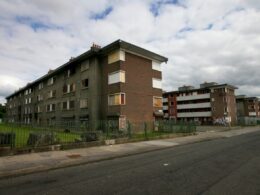By Caitríona Ní Chathain
Last month, Foras na Gaeilge announced funding cuts of €817,945, jeopardizing the future of Irish Language organisations across the island. In a meeting organised by Conradh na Gaeilge in Unite’s Dublin office this month, over one hundred Irish language community members from all over the island attended and spoke about what the announced cuts would spell for the already struggling youth groups, summer camps and other Irish language services for families and Irish speakers. Employees of Irish language organisations spoke about the challenges they already face due to a severe shortage of funds to keep their services running. Many of these services are under pressure due to funding not being raised in line with inflation.
This drastic cut follows in the wake of the cynical manoeuvres of the DUP in Stormont, which blocked discussion of the North-South Language framework from the Executive Agenda five times since Autumn 2024. Having been created under the Good Friday Agreement, Foras na Gaeilge oversees Irish language initiatives across the entire island of Ireland in areas such as youth work, summer camps, childcare and the arts, as well as ongoing research projects and media outlets in Irish.
Record of Stormont parties
However, these recent actions by the DUP are true to form. Prominent members of the DUP have a legacy of deriding and even mocking the Irish Language and its speakers in an effort to stoke sectarianism. Former chief whip of the DUP and East Antrim MEP Sammy Wilson once called Irish “a leprechaun language”. In 2019, standing in the way of a bill that would provide more financial support to the Irish Language, then DUP leader Arlene Foster said that it would make more sense to pass a “Polish Language Act”, also stating,”If you feed a crocodile they’re going to keep coming back and looking for more”.
In 2016, then Communities Minister and now Education Minister Paul Givan cut bursaries for disadvantaged children going to the Donegal Gaeltacht. This last straw led to a three-year collapse of Stormont. One of the factors that led to this decision was the fact that the executive agreed to an austerity budget in that year proposed by Sinn Féin Finance Minister Máirtín Ó Muilleoir. Outcomes such as this were predictable, and minority groups such as Irish speakers were always going to be disproportionately affected. It is utterly hypocritical for any Stormont party to agree on a budget which falls short of what’s necessary to meet the needs of ordinary people and then cry foul when the fallout impacts a constituency of interest.
A legacy of underfunding
While in this instance, the blame lies in the DUP’s cynical blocking of this essential funding, it is clear that the government in the South and Sinn Féin in the North have a history of attacking other aspects of Irish Language protection and promotion.
This intensified after the 2008 Recession, when government spending on the Irish language in the South, almost a decade after austerity, was one-seventh of what it had been in 2008. Establishment political parties in the South have a legacy of paying lip service to the Irish Language on the one hand while exercising austerity on the other. The continued decline of Gaeltacht areas exemplifies the lack of successive governments’ commitment to the Irish language. Notably, the ongoing housing crisis as made it unaffordable for Irish language speakers to live in these communities.
Mobilise and escalate
In light of these new proposed cuts, there is a palpable sense of anger among community groups who have struggled to make ends meet for decades. It is clear that any reversal of these proposed cuts will not be sufficient. Strike action has been tabled as an option, as well as refraining from organising Seachtain na Gaeilge this year in protest. These proposed actions follow in the tradition of grassroots movements that demanded for the right to use the Irish language in all aspects of public life, most embodied during the Gaeltacht Civil Rights Movement in 1969, which won the establishment of Radió na Gaeltachta, an Irish language radio service, and Údarás na Gaeltachta, an elected body responsible for the development of the Gaeltacht regions.
The struggle must not end there.
Irish Language initiatives are essential services for the community including childcare, youth work, music and the arts. We must stand in solidarity with all those affected by these cuts and demand an immediate reversal, as well as supporting any move to escalate the issue into mass protest or industrial action.
Irish Language activists must call for:
The Implementation of the Identity and Language (NI) Bill Equal status for both Irish and English. Reject all sectarian forces who wish to weaponise Irish language rights when they cynically utilise it.
Invest in language planning with a long-term strategy. We believe that promoting Irish must be part of a wider policy, which would require expanding public housing, education, childcare, transport, and other public services that would be accessible through the language.











